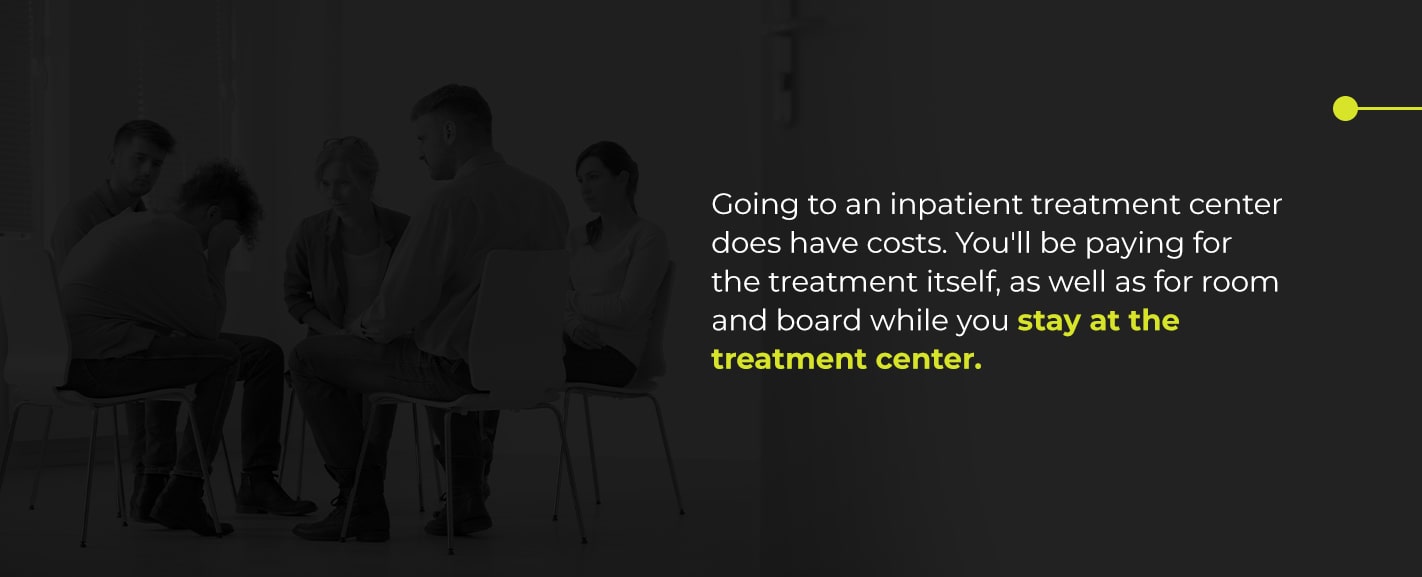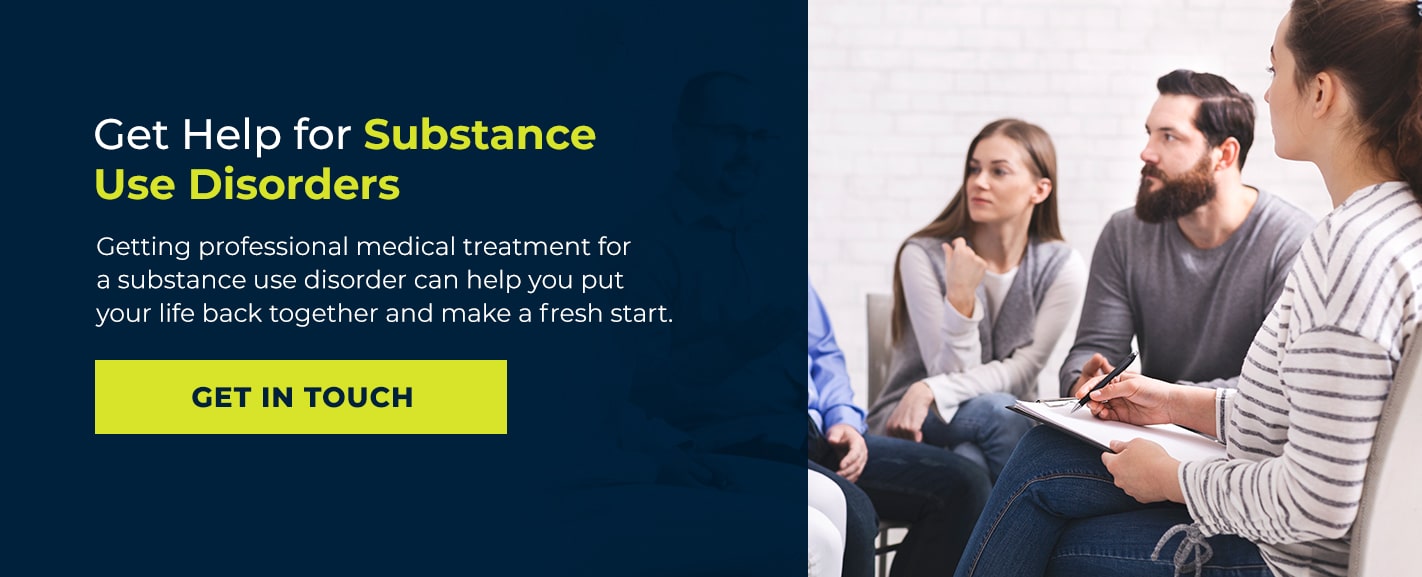- Oct 6
- Paying For RehabRecovery
For many people, going to a treatment center is the first step on the path toward recovery. But taking that first step can be the most challenging. If you find yourself wondering, “Do I need to go to rehab?” or telling yourself, “I don’t want to go to rehab,” you might have a list of reasons not to go.
Your reasons for not going to rehab might seem sound to you. But there are many ways to work past them and realize signing up for inpatient treatment or outpatient programs is the best option for you. See if you’ve used any of these excuses for not going to rehab and learn how to overcome them.
- I Don’t Have an Addiction
- I Need to Stay Home for My Family or Job
- I Can Do It on My Own
- Rehab Is Expensive
- I Just Need to Do __ First
- Rehab Doesn’t Work
- Get Help for Substance Use Disorders
1. I Don’t Have an Addiction
When people have a substance use disorder, ambivalence to the disorder is fairly common. The Substance Abuse and Mental Health Services Administration (SAMSHA) defines ambivalence as being aware of substance use’s effects while continuing to use the substances.
Even as you see the risks of continuing to misuse drugs or alcohol and the effects it has, you might not be ready to admit you need help to stop. Often, recognizing that you are struggling with substance use is the first step toward getting help. It’s usually the first phase in a 12-step program, for example.
Even if you are aware of substance use’s effects, you might still tell yourself you don’t have a problem due to stigma or fear of being judged or looked down on. It’s important to recognize the misuse of substances doesn’t reflect who you are as a person or your character. Having a substance use disorder or struggling to quit using doesn’t make you a “bad person.” Being ready and able to get help for the disorder means you’re ready to get your life back on track.
2. I Need to Stay Home for My Family or Job
Sometimes the reasons not to go to rehab are of a more practical nature. If you have young children at home, you might be concerned about who will care for them while you complete an inpatient program. You might worry that you’ll be let go from your job if you take several weeks off for treatment.
Although going into rehab will mean you need to spend time away from your children or other family members, in the long run, getting help lets you spend more time with them. When you aren’t using, you’ll be able to focus on your children and attend to their needs fully.
As far as your job goes, the Family and Medical Leave Act (FMLA) allows you to take leave from work for up to 12 weeks to get treatment for a substance use disorder. Under the FMLA, your employer can’t let you go or otherwise take action against you if you decide to take medical leave to get treatment for substance use disorder.
You can also consider outpatient programs that still provide a continuum of care and services. There are even virtual intensive outpatient programs available, meaning you don’t have to travel for treatment.
3. I Can Do It on My Own
Being self-sufficient and independent can seem like the American way. It’s often considered admirable to overcome challenges and struggles on your own. But, at the same time, it’s also admirable and heroic to recognize when you need help and to reach out and ask for it.
If you’ve already tried several times to stop misusing drugs or alcohol on your own, now might be the ideal time to grab the lifeline that’s being offered to you. Seeking out professional medical treatment can be what helps you address your addiction.
4. Rehab Is Expensive
Going to an inpatient treatment center does have costs. You’ll be paying for the treatment itself, as well as for room and board while you stay at the treatment center. But paying for substance use is also expensive. There’s the financial cost of the drugs or alcohol, plus the social cost of consequences, such as losing your job or custody of your children.
Keep in mind that your insurer may provide some form of coverage for substance use disorder treatment if you have health insurance. Your insurance policy might not pay for the full cost of care, but you can expect it to chip in at least some amount for your treatment.
5. I Just Need to Do __ First
If you’re telling yourself you need to do or finish something before starting treatment for substance use disorder, you’re likely to always find something you need to do before you can go. One way to move past the “after __” or “I need to do __” excuse is to remind yourself you’ll have the rest of your life to accomplish what you want to once you complete treatment.
Instead of saying you need to do something before you go to a treatment center, make a list of all the things you’ll have the time and money to do once you complete a treatment program. It can also be helpful to think about how you’ll be better able to do things, such as travel, finish a degree program or learn a musical instrument, when you’re no longer using.
6. Rehab Doesn’t Work
You’ve probably heard stories of people going in and out of treatment for substance use disorders. The media likes to tell vivid tales of celebrities who are struggling with their own substance use issues. Or you might have friends or relatives who went to a treatment center and relapsed years or months later.
Remember that just because someone else struggled with relapse doesn’t mean you will. It’s also important to remember that if you relapse after getting treatment, it doesn’t mean you failed or that the treatment wasn’t successful. It just means you need to try again. Getting help now is better than avoiding help because you worry it won’t be a success.
Get Help for Substance Use Disorders
While there are many excuses for not going to rehab, there are many more reasons to go to rehab. Getting professional medical treatment for a substance use disorder can help you put your life back together and make a fresh start. Gateway Foundation’s medical services and professional therapy can equip you with the skills you need to overcome substance use disorder. We’re here for you once you leave our programs and are fully committed to your ongoing success.
To learn more about getting help, contact us today. If your loved one is struggling with addiction and you need to know how to get someone in rehab that doesn’t want to go, learn more here.




